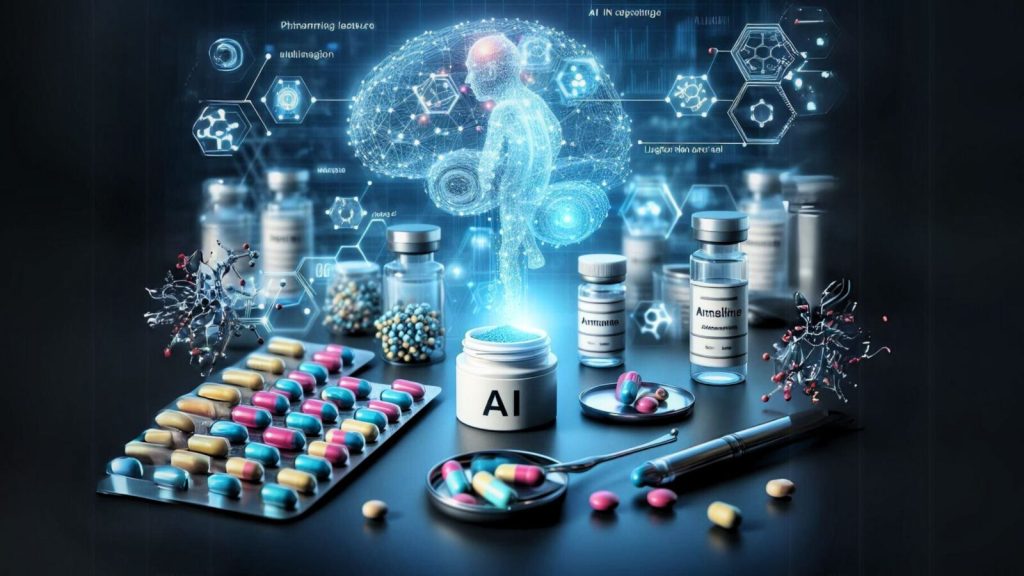The Role of Artificial Intelligence and Machine Learning in the Pharmaceutical Industry
Introduction: Digital Transformation in Pharmaceuticals
The pharmaceutical industry is undergoing significant changes driven by pressures to reduce costs, accelerate innovation, and manage extensive biological data. Artificial intelligence (AI) and machine learning (ML) have emerged as transformative technologies in this sector, revolutionizing drug discovery, development, and production. These advanced tools not only boost efficiency but also pave the way for personalized medicine and precision therapeutics, demonstrating immense potential to shape the industry’s future.
1. AI in Drug Discovery and Design
Traditional drug discovery is a costly, time-intensive process that involves screening millions of compounds and testing them on cellular and animal models. Today, AI and ML algorithms are empowering researchers to overcome these inefficiencies by analyzing vast amounts of biological and chemical data to identify novel drug candidates more accurately and swiftly.
- Real-World Application: Deep learning models can predict the 3D structures of proteins and their interactions with drug molecules, suggesting compounds with high therapeutic potential.
- Drug Repurposing: AI also enables the identification of new therapeutic applications for existing drugs, a practice that is gaining traction due to its cost-effectiveness and faster approval timelines.
2. Transforming Clinical Trials Through AI
Clinical trials are one of the most challenging and expensive stages of drug development, often hindered by inefficient patient recruitment and data management. AI-based solutions streamline these processes, making trials more effective and predictive.
- Patient Matching: AI systems analyze clinical and genetic datasets to identify the most suitable patients for specific trials, increasing enrollment efficiency and reducing cost.
- Real-Time Monitoring: AI enables real-time analysis of patient data during trials, allowing early detection of adverse effects and enhancing safety protocols.
- Predictive Success Modeling: By leveraging trial data, AI models can forecast the likelihood of success or failure, helping sponsors make informed decisions about trial continuation or termination.
3. AI in Drug Manufacturing and Quality Control
Drug manufacturing is a complex, high-stakes process where even minor deviations can significantly impact product quality and patient safety. AI-driven systems optimize production workflows, monitor quality, and ensure compliance with regulatory standards.
- Process Optimization: AI algorithms analyze production data to identify inefficiencies, predict breakdowns, and minimize waste.
- Automated Quality Control: AI can process data from spectrometry, imaging, and sensory tools to detect impurities or inconsistencies in drug formulations.
- Supply Chain Management: Predictive analytics powered by AI helps forecast market demand, optimizing production schedules and inventory management.
4. Personalized Medicine and Precision Therapeutics
One of the most promising applications of AI is the advancement of personalized medicine, where treatments are tailored to an individual’s unique genetic, biological, and lifestyle characteristics. Machine learning enables healthcare professionals to craft more targeted and effective treatments.
- Predictive Treatment Responses: AI analyzes patient data to anticipate how individuals will respond to specific drug therapies, ensuring better outcomes and minimizing side effects.
- Reduced Risk: Precision medicine reduces the likelihood of adverse reactions by recommending dosages and therapies based on genetic compatibility.
5. AI’s Role in Market Analysis and Forecasting
Artificial intelligence isn’t just changing drug development—it’s also transforming how pharmaceutical companies connect with the market. By using AI tools to analyze consumer behavior and market data, businesses can refine product strategies and forecast trends more accurately.
- Demand Prediction: AI forecasting models help optimize production schedules and inventory levels by predicting demand patterns.
- Market Insights: Access to real-time market intelligence enables companies to anticipate shifts in consumer behavior, improve decision-making, and target high-growth opportunities.
6. Challenges and Barriers to AI Adoption
While AI offers tremendous potential, its integration into the pharmaceutical industry is not without obstacles:
- Data Volume and Quality: AI relies heavily on vast amounts of high-quality data; incomplete or unreliable datasets can undermine its effectiveness.
- Privacy Concerns: Ensuring compliance with data privacy laws (e.g., GDPR) and safeguarding sensitive patient information is critical.
- Algorithmic Bias: Models built on skewed datasets may lead to inaccuracies or unfair treatment in decision-making.
- Interdisciplinary Expertise: Successful AI implementation requires collaboration between AI engineers, biologists, pharmacologists, and medical professionals.
7. Successful Applications of AI in Pharmaceuticals
- DeepMind’s AlphaFold: This pioneering project by Google revolutionized drug design by predicting the structure of proteins with remarkable accuracy, accelerating therapeutic research.
- Atomwise: This AI-driven venture uses deep learning to design drug molecules, shrinking the development timeline from years to weeks.
Conclusion: The Future of AI in Pharmaceuticals
The integration of AI and machine learning is reshaping every aspect of the pharmaceutical industry, from faster and more affordable drug discovery to better personalization of medicine. By leveraging these technologies, pharmaceutical companies can reduce costs, improve patient outcomes, and create innovative solutions that were previously unattainable.
Despite challenges like data privacy, algorithmic bias, and the need for multidisciplinary expertise, the accelerating global investment in AI indicates its transformative role in driving advancements across the industry. AI is set to redefine the pharmaceutical landscape and enable unprecedented healthcare breakthroughs.
